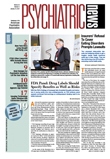A limited number of mental exercises helped older adults perform better on cognitive tests and experience less difficulty in performing daily activities than those who did not receive the training.
Moreover, the benefits for those who received the training were immediate and lasted for as long as five years, or the duration of the study, according to a report in the December 2006 Journal of the American Medical Association.
Moreover, those who received booster training sessions performed three times faster than those who received only the initial training sessions on tasks such as preparing meals, balancing a checkbook, and finding numbers in a phone book.
Not only does the study suggest that elderly people are capable of improving their cognitive skills as they continue to age, but that the cognitive gains may translate into improved functioning in everyday life, said study author and researcher Michael Marsiske, Ph.D., an associate professor in the Department of Clinical and Health Psychology at the University of Florida.
“We found that boosting people's cognitive functions had real-world implications for their everyday functioning,” Marsiske told Psychiatric News.
As part of the Advanced Cognitive Training for Independent and Vital Elderly (ACTI VE) study, Marsiske and his colleagues recruited a sample of 2,832 adults aged 65 or older and in good functional and cognitive status from senior housing, community centers, hospitals, and health clinics in Birmingham, Ala.; Detroit; Boston; Baltimore; Indianapolis; and State College, Pa., between March 1998 and October 1999. The study lasted until December 2004.
Four Groups Evaluated
The sample was then randomly divided into four groups: participants in three of the groups received 10 one-hour sessions of memory training, reasoning training, or speed of processing training. Each group received only one type of training. The fourth group served as a control group and received no cognitive training.
Those who received memory training were instructed on basic strategies to help them remember lists of words. The strategies included compiling groups of words into larger categories to more easily remember them, visualizing the words, and associating the words with a meaningful experience to make them easier to remember.
Volunteers who received reasoning training were taught to look for patterns among lists of sequences of letters, for instance. In speed-of-processing training, participants were asked to identify an object that appeared on a computer screen among visual distractions at increasing rates of speed.
Researchers assessed participants immediately after the intervention and annually at one, two, three, and five years using cognitive tests relating to memory, reasoning, and speed of training. They asked participants to rate themselves on completing tasks such as preparing meals, completing household chores, finances, telephone use, and shopping using the six-point Minimum Data Set–Home Care scale to measure their difficulty in instrumental activities of daily living.
In addition, the researchers used performance-based measures to test the effects of training in the three areas that required reasoning and comprehension skills such as identifying information on medication labels, using the yellow pages, making change, and reacting to road signs.“ These activities we consider crucial for living independently,” Marsiske noted.
Researchers conducted four booster training sessions among a random sample of participants for each type of the cognitive training at 11 and 35 months after the initial training. The content of the booster sessions was similar to that of the initial training sessions.
Booster Training Helped Cognition
They found that for certain groups, the initial training and later booster sessions not only improved cognitive abilities, but also everyday functioning.
Marsiske found that each type of cognitive training produced immediate improvement on cognitive ability, which lasted five years after the initial training sessions. Participants who received reasoning training reported significantly less difficulty in the activities of daily living than did the control group. Neither memory training nor speed of processing training had a significant effect on these activities, according to the report.
However, booster training for people who received speed of processing training had a significant effect (.30 effect size) on the performance-based measure of speed of processing training (looking up phone numbers in the yellow pages or reacting quickly to road signs, for instance) compared with those who received no booster training.
Further research should examine how older people might substitute do-it-yourself activities for the training activities assessed in the study. For instance, CDROMs, books, or Web sites offering cognitive exercises might help them to slow cognitive decline as they continue to age, Marsiske noted.
“Given the durability and strength of these cognitive effects,” he added, “we may be able to build some kind of cognitive reserve using these approaches.”
The findings may also bode well for middle-aged adults looking to sharpen cognitive skills and improve later-life functioning, he noted. “When age-related decline begins, these people would have the benefit of declining from a higher baseline” in cognitive and functional abilities.
An abstract of “Long-Term Effects of Cognitive Training on Everyday Functional Outcomes in Older Adults” is posted at<jama.ama-assn.org/cgi/content/abstract/296/23/2805>.▪
